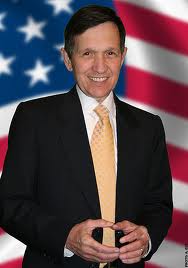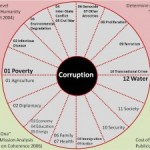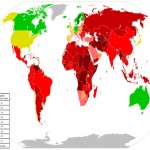
PART I: The Only Way to Fix the Deficit–Multiply Jobs (William Drayton)
PART II: Nice Ideas But So Is Icing Cover Feces (Robert Steele)
PART III: Create Jobs? As an End In Themselves? To Do What? Why? (Alexander Carpenter)
PART IV: Related Recommended Reading (Robert Steele)
The core take-away (from PART III)
Beyond its inherent merit and explicit substance, William Drayton: The Only Way to Fix the Deficit: Multiply Jobs is a great example of unconscious status-seeking righteousness – well-meaning ineptitude and irrelevance, trapped in the old paradigm of debt-money, growth, and social conditioning. This kind of thinking is exemplary of people who are focused on the superficial “economic crisis,” not going deeper to see that we have a political (and even a social) crisis with, of course, an economic manifestation. This represents the success of the pseudo-science of “economics,” originally created with the intention to get most people to believe that objective “natural” forces are running their lives, not other people, classes, and institutions (Thurmond Arnold, 1937). Good problem-solvers always begin with as much accurate information about the overall problem as possible. It's incompetent – or unconscious self-deception – to assume human nature isn't the core and essence of the problem, and Bill Drayton isn't necessarily incompetent…
Perspective (from PART III Reference):
“By providing the funding and the policy framework to many concerned and dedicated people working within the non-profit sector, the ruling class is able to co-opt leadership from grassroots communities, … and is able to make the funding, accounting, and evaluation components of the work so time consuming and onerous that social justice work is virtually impossible under these conditions” (Paul Kivel, You Call this Democracy, Who Benefits, Who Pays and Who Really Decides, 2004, p. 122 )
Phi Beta Iota: In Advanced Information Operations (IO) terms, we cannot fix the military until we fix government, we cannot fix government until we fix Wall Street and Main Street, we cannot fix the economy until we fix the society, and all of that requires a firm focus on human nature and the relations among humans. We live is a “whole system” and are mis-managing it by being ignorant and delusional about root causes and actual relationships. Until we get the truth on the table, we cannot deal with it. Good news: all it takes is ONE node able to blend intelligence & integrity, that “spike” will proliferate. The bottom line is that DEMAND creates jobs, and EDUCATION creates the demand for the RIGHT jobs. Taking one example, the US Army, it could apply Advanced Information Operations to create a 180 degree maturation of the mind-set of its personnel, and use that to “eat the old” and create the new. The US Army is going to suffer a nose dive in financial resources (as will the other services); the US Army is the ONLY service that must might be capable of “beating the dive” by re-inventing itself from inside out–starting with Advanced IO being about minds, not technology. Similarly, a single multinational could “get a grip” and re-invent itself overnight–the example will proliferate.
Continue reading “Journal: Get America Working–A Conversation”







